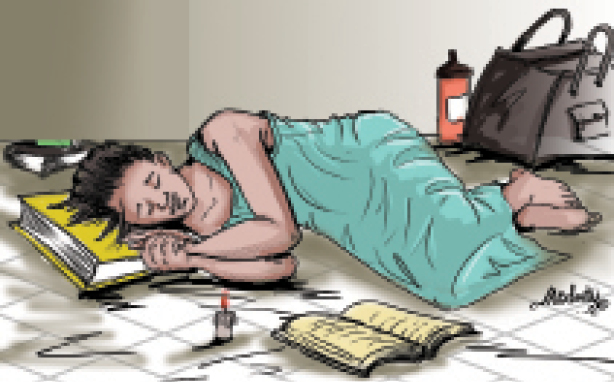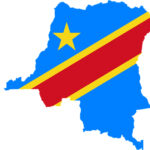It is important for women and girls to manage their period in a way that is healthy and also allows them to participate effectively at work, school, and in other activities, experts say.
Till date some women and girls have poor knowledge about menstruation and this has led them into using unhygienic absorbent materials and engaging in other unhealthy practices.
Anu, a student in a government secondary school in Abuja said her mother never talked to her about menstruation while growing up. She only heard about it from another teenager in her neighbourhood who said her aunts told her it was a thing of shame and that “she shouldn’t let anyone know when she was doing it”.
“I didn’t even know how to use a sanitary pad and what not to use to prevent germs or infection,” she added.
The 13-year-old said as a result of the wrong information given to her, she was always scared whenever her period arrived, forcing her to resort to unhealthy practices for a year after she began experiencing it.
Respite only came her way when her teacher taught menstruation in class and explained the need for those experiencing it to maintain hygiene.
“Menstruation is still seen as a taboo, a shameful issue, and cause for concern for some girls because of lack of education,” said Maureen Stanley, a senior coach with the Power Forward project. She added that the situation motivated them to begin sensitization exercise on menstrual hygiene in secondary schools in Abuja.
Menstrual hygiene is not just about access to sanitary pads and clean toilets but also includes ensuring women and girls live in an environment that values and supports their ability to manage their menstruation with dignity.
Experts advise women and girls to wear clean and comfortable underwear during their periods. They also advise that they keep their vaginal area clean and to change their sanitary pads every four hours. It is not advisable to use pad for more than eight hours even when the flow is light, they said.
It is also important to properly clean reusable pads to avoid germs and not to use them more than the times stipulated by the manufacturer.
Dr Fatima Daggash of the Federal Capital Territory Administration (FCTA) HIV/STI’s Unit said it is important for women and girls to stay clean before, during and after menstruation, and to change their sanitary pads regularly to prevent infection.
She advised women and girls to wash their hands after changing sanitary pads, change the towels often, take regular baths, shave and use deodorants during their periods.
The medical doctor said it is important for them to change their sanitary pads often to prevent infection. She also advised them to eat balanced diet and stay well hydrated.
It is also important to dispose them properly and wash and dry improvised ones in the sun before reuse. Many women, particularly in rural areas, do not wash and dry in the sun because of the ‘shame’ attached to it.
She said there is need for people to realize that menstruation is a normal occurrence and not a shameful thing.
Dr Daggash said there are so many myths about menstruation, adding that there is need for girls to have the right information so that they can pass it to their peers and others.
“People need to know that menstruation is a normal thing and happens to every girl. It is something God designed to prepare women for motherhood.
“Girls should be able to talk to their parents, and caregivers, about their menstrual experiences including if they have pains. They should wash their hands after changing sanitary towels, take regular baths, use deodorants and shave to mention a few. They should also eat balanced diet, and stay well hydrated,” she advised.
While saying she does not advise the use of cloth in place of menstruation pad, Dr Daggash noted that poverty has forced some people into its use. She called on government and other stakeholders to provide free sanitary towels or at subsidised rates for women and girls, particularly the less privileged ones that could not afford them.
Programmes Director of Theodora Anavhe Adamu Foundation (TAAF), Odion Ikyo, said access to proper menstrual education, water and hygienic menstrual products, could change a lot in a woman’s maternal health.




